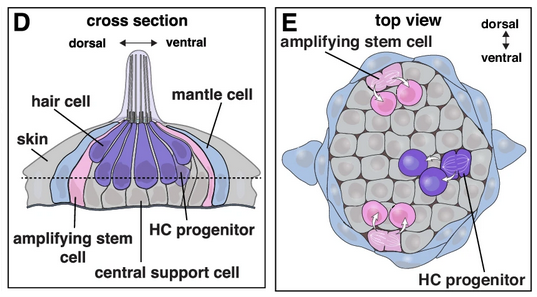By Tomoe Miyazaki
When people think of hearing loss and related conditions and the frustration they can often create, I know well I’m not the first person who comes to mind. I am a 24-year-old, recent college graduate and hiking aficionado, working as a business development associate.
My intentions with sharing my story are to show the public that my hearing health circumstances are not restricted to older adults, and to build solidarity with folks in my own age demographic affected by hearing and balance conditions, especially those that remain unresolved.
After running tests, a neurologist told Tomoe that her symptoms are strongly indicative of Ménière’s disease although she hasn’t been able to confirm a diagnosis.
During my third year at University of Michigan, where I was studying biochemistry and French, I became aware of an unfamiliar, jarring sensation—extreme dizziness. If I closed my eyes for just a little bit, I’d feel my surroundings spinning.
It was around the same time I recognized my difficulties hearing in large lecture halls. I wondered: How can my classmates hear the professors so much better than I could? Why do I struggle so much to work in groups?
This didn’t make sense to me. But when I noticed my grades were suffering considerably and that I was close to failing a class, I knew it was time to seek medical attention.
It is worth noting that I’d had a hearing loss from a very young age that affected my childhood, since I always felt isolated from my peers. But until the dizziness became a problem, I did not seek help for my hearing until college.
My first visit was to my primary care provider, who directed me to both a vestibular (balance) specialist and an ENT (ear, nose, and throat) doctor. The ENT suspected a migraine issue and referred me to a neurologist. Fortunately, the neurologist ruled out a neuronal/brain condition, but said my symptoms are strongly indicative of Ménière’s disease, a rare hearing and balance condition that is poorly understood.
Troublingly, Ménière’s disease can’t be confirmed for me, which is a typical predicament for many patients with vestibular disorders. My ENT maintains my audiogram doesn’t follow a typical Ménière’s pattern of low frequency hearing loss—mine is high frequency.
Tomoe was in her third year at University of Michigan, studying chemistry and French, when she began experiencing extreme dizziness. She has had a hearing loss since childhood.
For now, I am in a trial-and-error stage. Recently, I began a low sodium diet and decreased my alcohol and caffeine intake. I was also directed to get a hearing test twice yearly to measure significant changes in my audiogram.
I do have a measurable sensorineural hearing loss and had been prescribed hearing aids. I admit I do not wear my hearing aids as instructed because of the stigma associated with the devices and my relatively young age. I hope to overcome my hesitation to wear hearing aids.
In the meantime, I am learning American Sign Language to facilitate my communication with others. But to this day I still struggle with feelings of shame and anger at myself that I go out of my way to keep this part of me hidden from others.
On top of my hearing loss and vertigo, I also live with tinnitus, the sensation of ringing in the ears, and haven’t managed to find any viable solutions. My tinnitus is like a crackling sound and bothers me most when I am exposed to external noise. The condition is so bad that it negatively affects my work and relationships.
I hope I can figure out what exactly is causing my hearing and balance symptoms, and in the meantime, I hope my story inspires other young people that there are others out there who may be going through what you’re going through.
You are never alone in your journey. I hope knowing you’re not alone can be a first step to breaking the stigma surrounding hearing loss, as this is part of why I struggle to accept that I have this condition and that I would benefit from hearing aids if I consistently wore them.
That said, I know many in the Deaf community don’t necessarily want to use hearing devices, and that choice should be respected. If there is anything I want people to know, it would be that those of us with hearing loss are capable of doing anything except hear. All of us are capable of success in life, no matter what path for communication we choose.
Tomoe Miyazaki lives in Michigan. She welcomes comments and questions at tomorin_usa@yahoo.com.








Before I discovered CART, I often felt left out, despite being physically present. This gap in awareness affects thousands of people. That’s why I speak up, because access delayed is opportunity denied.